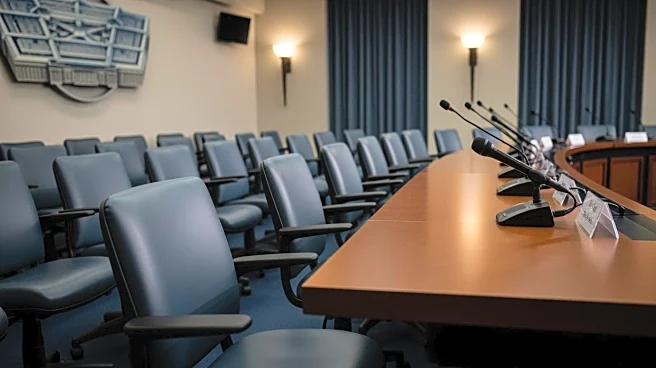What's Happening?
Dozens of reporters have turned in their access badges and exited the Pentagon in protest against new restrictions imposed by Defense Secretary Pete Hegseth. The rules, which require journalists to refrain
from reporting on unapproved information, have been widely rejected by news organizations. These restrictions are seen as a threat to journalistic freedom, with reporters expressing concern over their ability to cover military affairs effectively. President Trump has supported these measures, citing the press as disruptive to world peace. Despite the new rules, journalists have vowed to continue their coverage of the military from outside the Pentagon.
Why It's Important?
The imposition of these new rules marks a significant shift in the relationship between the press and the Pentagon, potentially impacting the transparency of military operations. By limiting access to information, the rules could lead to less comprehensive reporting on national security issues, affecting public understanding and oversight. The move has sparked concern among journalists and media organizations about the erosion of press freedom, a cornerstone of democratic society. The broader implications could include a chilling effect on sources within the military, reducing the flow of information to the public.
What's Next?
Journalists have pledged to continue their reporting on military affairs despite the new restrictions, potentially leading to increased reliance on unofficial sources and alternative methods of information gathering. The Pentagon Press Association and other media organizations are likely to continue advocating against these rules, seeking to restore access and protect journalistic freedoms. The situation may prompt further legal challenges and public debate over the balance between national security and press freedom.
Beyond the Headlines
The new press restrictions raise ethical questions about the role of journalism in holding power to account and the potential consequences of limiting access to information. The move could set a precedent for other government agencies, influencing how press freedom is perceived and practiced in the U.S. The cultural impact may include a shift in public trust towards media outlets that resist such restrictions, highlighting the ongoing struggle for transparency and accountability in government.











